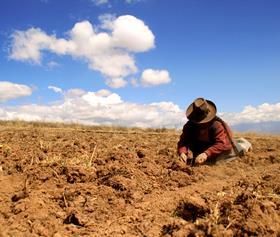
A new initiative is being launched by members of the US and Mexican produce industries to improve conditions for workers at Mexican farms in the wake of an investigation by the Los Angeles Times into the widespread ill treatment of labourers at companies supplying some of the leading retailers and restaurants in the US.
The project, provisionally called the International Fresh Produce Social Responsibility Alliance, is seeking to address some of the issues highlighted by the newspaper including poor living conditions and the illegal withholding on pay to prevent workers leaving during peak harvest periods. It includes the Fresh Produce Association of the Americas (FPAA), a group representing more than 100 US importers and distributors of Mexican produce, and the Sinaloa-based Confederation of Agribusiness Associations (CAA), which represents some of the companies biggest exporters. Between them the two groups are responsible for 80 per cent of US-bound Mexican produce.
CAA director Mario Robles told the LA Times that the aim of the new initiative is to ensure that all laws are properly applied. “If the laws say pay every week, then that has to be. Companies that don’t will have to leave the alliance,” he said.
“The organisations have signed a pledge that will relate to developing programmes to highlight the kinds of social responsibility practices that I think are necessary these days,” said Lance Jungmeyer, president of the FPAA.
The LA Times investigation claimed that many workers were forced to live in rat-infested camps, sometimes without beds or a reliable water supply. It also claimed that some were forced to scavenge for food due to bosses illegally withholding wages to prevent them from leaving. It also accused US companies of not doing enough to enforce social responsibility guidelines. Jalisco-based Bioparques de Occidente and Rene Produce in Sinaloa, which supply companies including Walmart and Whole Foods, were amongst those named and shamed by the newspaper.
The exposé has been welcomed by a number of grower unions but it has also attracted criticism from some members of the trade who claim it presents an unbalanced view of Mexico’s agricultural export industry.



